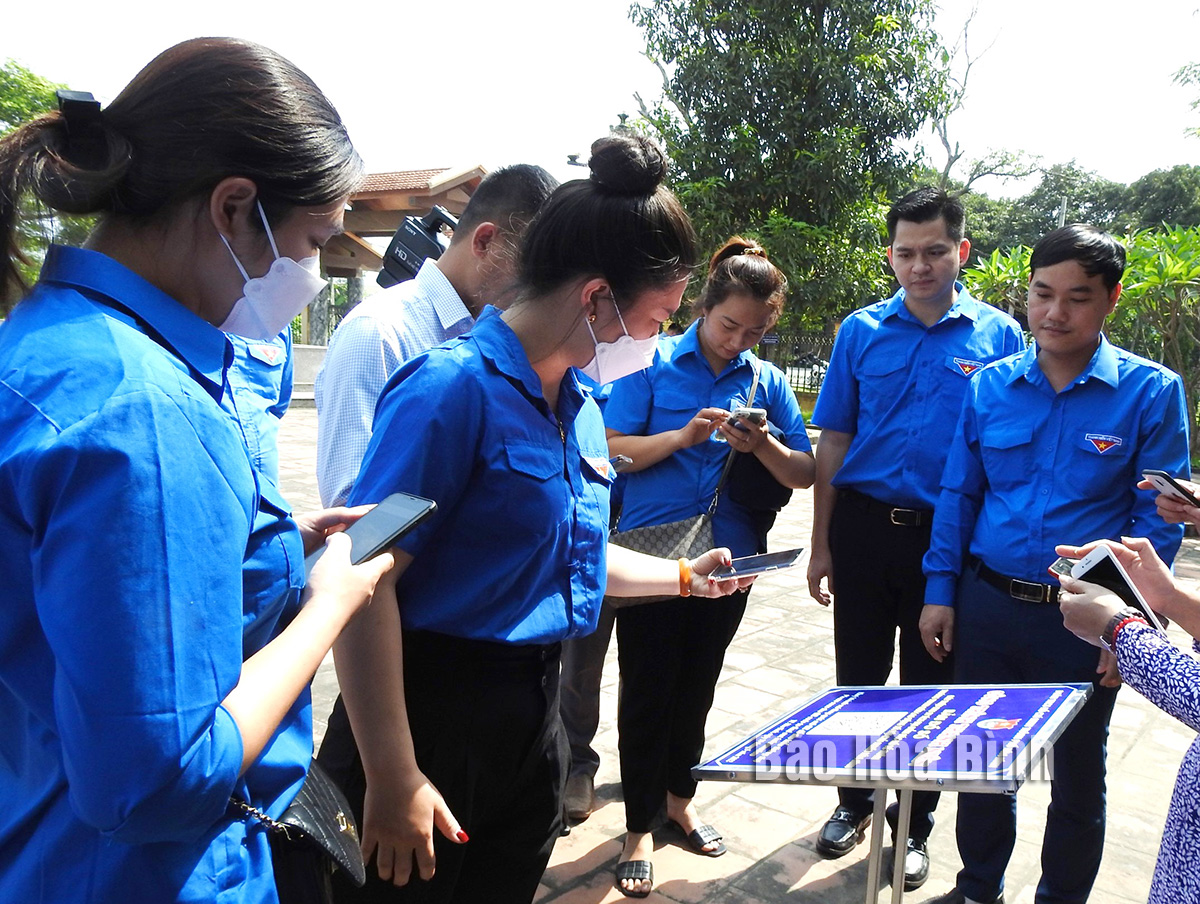



Hoa Binh city’s youth implementing QR code scanning of Uncle Ho's relics to visit the Socialist Labor Youth School in Truong Yen hamlet, Yen Mong commune.
Hoa Binh is home to various ethnic groups, namely Muong, Kinh, Thai, Dao, Tay, and Mong, of which the Muong ethnic group accounts for nearly 64% of the total. Each group has its own customs, beliefs, heritage values of literature and arts, language, writing and folk knowledge, and unique traditional costumes. The province is also home to the world-famous Hoa Binh Civilisation - the cradle of the ancient Vietnamese people.
Over recent years, the province has paid attention to and directed the work of preserving and developing the culture of ethnic minorities.
Nguyen Duy Tu, Secretary of the provincial Ho Chi Minh Communist Youth Union, said that by now, the unions at all levels have established a website and 165 fanpages to regularly post news on the work of building ethnic culture and identity, attracting the attention and response of many members and young people.
In addition, local youths have pioneered in digital transformation, building and applying QR codes at historical and cultural relic sites to provide information and automatic explanations on the province’s culture and tourism for people and tourists.
At the 2024 dialogue with youths with the theme "Hoa Binh Youth join hands to build ethnic culture and identity to meet the requirements of comprehensive and sustainable development", Bui Van Khanh, Deputy Secretary of the provincial Party Committee and Chairman of the provincial People's Committee, expressed his hope that local young people will promote their role in building and developing the culture and people of Hoa Binh, actively disseminating and implementing to bring the viewpoints, policies and strategies of the Party and State on building Vietnamese culture and people in general and Hoa Binh culture and people in particular into life.
He also stressed the need to effectively carry out education on revolutionary ideals, study and follow President Ho Chi Minh's ideology, morality, and lifestyle so as to enhance patriotism and national pride, and nurture ambitions and aspirations to build and defend the Fatherland.